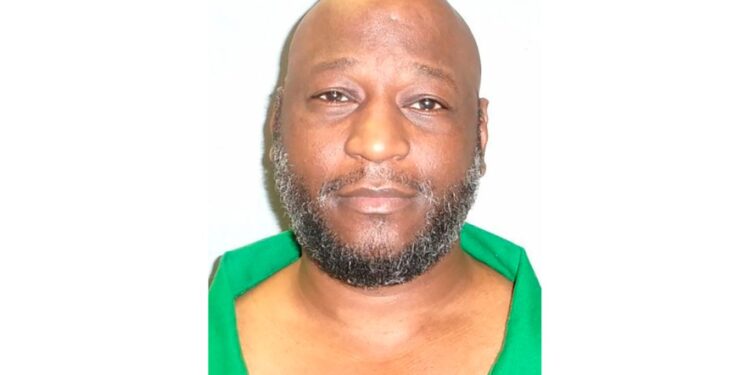A South Carolina inmate on death row will have a choice of lethal injection, electrocution or a firing squad for his scheduled September execution — the state’s first in 13 years.
Freddie Eugene Owens, 46, is set to be put to death on Sept. 20 for the 1997 murder of store clerk Irene Graves during a string of Halloween-night robberies in Greenville, the South Carolina Department of Corrections announced Friday.
Owens has been given 14 days to choose his preferred method of execution or the state will use the electric chair.

The firing squad was a recent option added by the state, which supporters, including some Democrats who are opposed to the death penalty, say is more humane.
Owens has been sentenced to death three separate times during failed appeals.
Following his 1999 conviction for murder, armed robbery and criminal conspiracy, Owens also killed his cellmate at the Greenville County Jail.
He told investigators during a trial how he killed his cellmate by stabbing and burning his eyes, choking him and stomping him.
The director of the Broad River Correctional Institute has five days to confirm that all three execution methods are available and prove that the lethal injection drug is stable and correctly mixed.
The injection requirements follow the state Supreme Court passing a law in 2023 that keeps lethal injection drug suppliers private.

South Carolina was once one of the busiest states for executions but since its last one in 2011 has struggled to obtain the fatal drugs.
In July, the state Supreme Court officially cleared the way to restart executions.
Thirty-two inmates currently face capital punishment in South Carolina.
“The lack of transparency about the source of the execution drugs, how they were obtained and whether (they) can bring about as painless a death as possible is still of grave concern to the lawyers that represent persons on death row,” attorney John Blume told the Associated Press on Friday.
Owens, who reportedly changed his name to Khalil Divine Black Sun Allah in 2015, can ask Republican Gov. Henry McMaster to reduce his sentence to life without parole.
No South Carolina governor has ever granted clemency in the modern era of the death penalty, according to reports.
With Post wires






